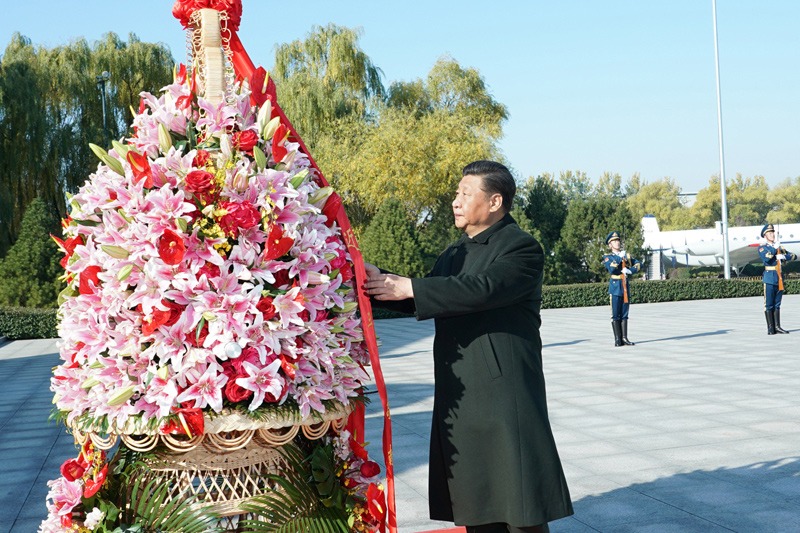Light at the end of a long tunnel


The world enters 2021 hoping to defeat the devastating COVID-19 pandemic, but it won't be a quick and easy fix
Puurs, about 30 kilometers north of the Belgian capital Brussels, is little known except for its brewery, which produces the world-famous Duvel beer. Yet the small town of 16,000 residents made headlines recently for providing fresh hope in the global fight against COVID-19.
The Pfizer factory there has been manufacturing the novel coronavirus vaccine, jointly developed by the US company and Germany's BioNTech. On Dec 8, Margaret Keenan, 90, became the first member of the public to receive the Pfizer vaccine after its use was approved by the United Kingdom government.
Following the UK, countries such as the United States, Canada, Mexico, Singapore and Switzerland have also approved the vaccine, which claims to have 95 percent efficacy. Before that, China and Russia had already started to deploy their locally developed vaccines. The United Arab Emirates and Bahrain were the first foreign countries to approve the vaccine by Chinese company Sinopharm, with a claimed efficacy of 86 percent, in early December.
There are more than 50 trials of COVID-19 vaccine candidates being conducted around the globe, according to the World Health Organization.
Tedros Adhanom Ghebreyesus, WHO director-general, has called it "an astounding scientific achievement" to have safe and effective vaccines against a virus that was completely unknown only a year ago. Vaccines usually take years or even decades to develop.
Despite the COVID-19 vaccines creating hope around the world, the United States' Duke Global Health Center in Durham, North Carolina, said that its models show there will not be enough to cover the world's population until 2023 or 2024. Manufacturing capacity can be expanded with targeted investment, but only to a limited extent.























